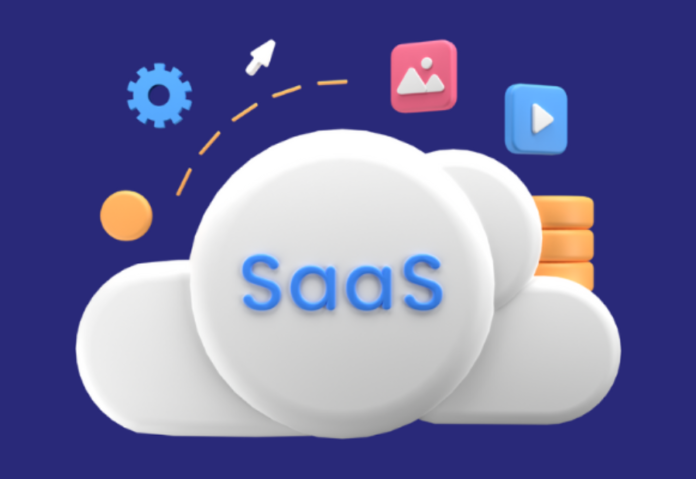Several industry leaders told Media that the software-as-a-service (SaaS) sector in India is facing significant challenges, such as waning demand, cautious investor backing, and the disruptive effects of artificial intelligence (AI).
According to Karan Sharma, managing director of Avendus Capital, software expenditure in the US, the largest SaaS market, suffered sharp declines due to tight budgets and a greater emphasis on operational efficiency, meaning that SaaS financing is still below 2022 levels. According to him, businesses have also prioritized sustainable scaling over aggressive expansion, and valuations have drastically changed.
Venture Intelligence data indicates that investment for Indian SaaS firms increased somewhat from $1.3 billion in 2024 to $1.8 billion in 2024. But this is little compared to the $4.4 billion that was raised in 2022.
In 2024, there were 184 agreements, which was comparable to the previous year but far fewer than the 274 deals in 2022.
AI: A double-edged sword
“AI-first startups have placed increased pressure on existing SaaS providers to provide smarter, more adaptive, and highly personalised solutions,” said Praval Singh, vice president of marketing and customer experience at SaaS major Zoho. “It’s a challenge that calls for consistent R&D and talent upskilling by vendors to determine how AI can revolutionise their line of business and enable innovative pivots to serve customers effectively.”
While implementing AI has enormous potential, Singh pointed out that creating one’s own AI models necessitates access to sophisticated machine learning (ML) models, huge datasets, and qualified personnel pools—resources that smaller SaaS companies could find difficult to get.
He recommended adopting AI gradually, utilizing pay-as-you-go cloud-based AI services and open-source platforms in the medium term while eventually striving for in-house development.
Indian SaaS businesses are concentrating more on the application layer of AI, employing OpenAI and other AI-driven solutions to improve their end-user offerings, according to Siva Rajamani, founder of SaaS startup Everstage.
“Because of the AI transition, there is an opportunity to disrupt some of the existing leaders in the (SaaS) market and that’s the opportunity that I think a lot of Indian startups should also go after,” he said.
In October 2024, Everstage secured $30 million in a fundraising round headed by Eight Roads Ventures, in which Elevation Capital and 3one4 Capital also participated.
Cofounder of SenseAI Ventures Rahul Agarwalla ascribed the overall loss in SaaS investment to a decrease in growth-stage and late-stage deals as a result of market uncertainty. He did point out that early-stage investment is still available.
With a capital of Rs 200 crore, SenseAI Ventures introduced its inaugural fund, SenseAI Fund I, last year with an emphasis on AI-first enterprises.
Freshworks restructuring
Often praised as the face of Indian SaaS success, Freshworks had a major reorganization this year. In May 2024, Girish Mathrubootham, the creator of the enterprise software business located in Chennai and San Mateo, California, resigned as CEO.
In an attempt to simplify operations, a significant layoff that affected around 660 individuals worldwide—13% of the workforce—took place in November.
According to documents filed with the US Securities and Exchange Commission, Mathrubootham sold Freshworks shares for around $40 million in the most recent development, according to the media.
Indian public markets
SaaS firms with headquarters outside of India have traditionally focused their public offerings on the US market. The path is more difficult for mid-sized businesses, though, as successful US initial public offerings (IPOs) increasingly need significant scale and robust analyst coverage, according to Sharma of Avendus Capital.
Even for smaller-scale IPOs, the booming Indian public markets have opened doors for IT companies with high investor demand and solid values. He pointed out that this has made a strong argument for Indian listings and, in certain situations, re-domiciling back to India.
Way ahead
Indian SaaS has a bright future ahead of it, notwithstanding present difficulties. Industry leaders identify tailwinds as major growth drivers, including cloud migration, process automation, AI use, and digitization across sectors.
“The key lies in leveraging AI not as a standalone feature but as a core value driver to improve outcomes,” said Vipin Raghavan, cofounder and CEO of Haber, an industrial AI startup.
According to CEOs, Indian SaaS firms are in a strong position to overcome obstacles and forge a course for long-term success by taking advantage of innovation and possibilities in both domestic and international markets.
Also read: Viksit Workforce for a Viksit Bharat
Do Follow: The Mainstream formerly known as CIO News LinkedIn Account | The Mainstream formerly known as CIO News Facebook | The Mainstream formerly known as CIO News Youtube | The Mainstream formerly known as CIO News Twitter
About us:
The Mainstream formerly known as CIO News is the premier platform dedicated to delivering the latest news, updates, and insights from the CIO industry. As a trusted source in the technology and IT sector, we provide a comprehensive resource for executives and professionals seeking to stay informed and ahead of the curve. With a focus on cutting-edge developments and trends, The Mainstream formerly known as CIO News serves as your go-to destination for staying abreast of the rapidly evolving landscape of technology and IT. Founded in June 2020, The Mainstream formerly known as CIO News has rapidly evolved with ambitious growth plans to expand globally, targeting markets in the Middle East & Africa, ASEAN, USA, and the UK






